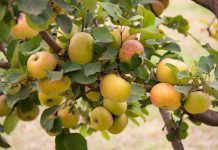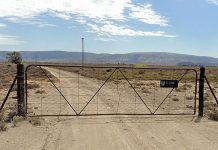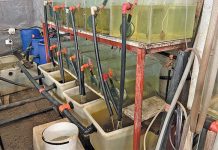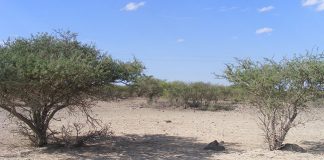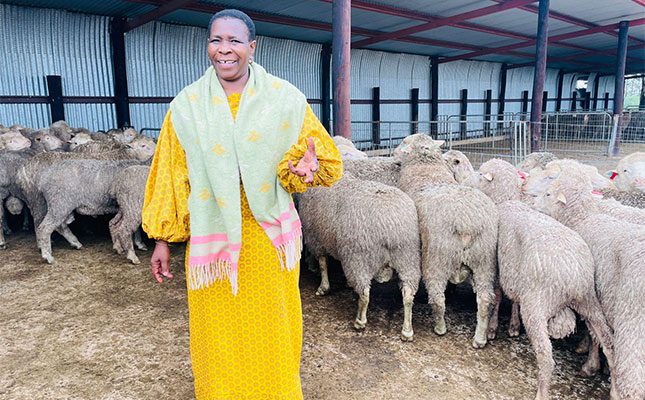
Photo: Supplied
Speaking to Farmer’s Weekly, MEC Nonceba Kontsiwe said that among the beneficiaries was Masibhozo Yilo of Zilandana Village in Qumbu, whom lost nearly 100 sheep in a recent veld fire.
READ The riskiest periods for sheep producers
“Yilo received six Dohne Merino rams to help rebuild his flock and enhance its genetic quality,” she said.
Kontsiwe said that the donation of the sheep was important for improving the genetics of flocks in the district, so that these farmers could produce better-quality wool to meet international standards.
For the 2024/24 financial year, the department had allocated R5,2 million to the procurement of 1 191 Dorper, Merino and Dohne Merino sheep, which would be distributed to farmers across the province.
“The initiative forms part of the department’s broader strategy to strengthen the wool industry by improving livestock genetics, increasing inclusivity by supporting youth, people with disabilities, and military veterans, enhancing market access for communal farmers, and expanding training and mentorship opportunities,” she said.
READ Epigenetics: what it is and what it can do for livestock production
According to Kontsiwe, the Eastern Cape remained a key contributor to South Africa’s wool industry, producing approximately 11,3 million kilograms of wool annually, with black communal farmers accounting for nearly five million kilograms of this total.




